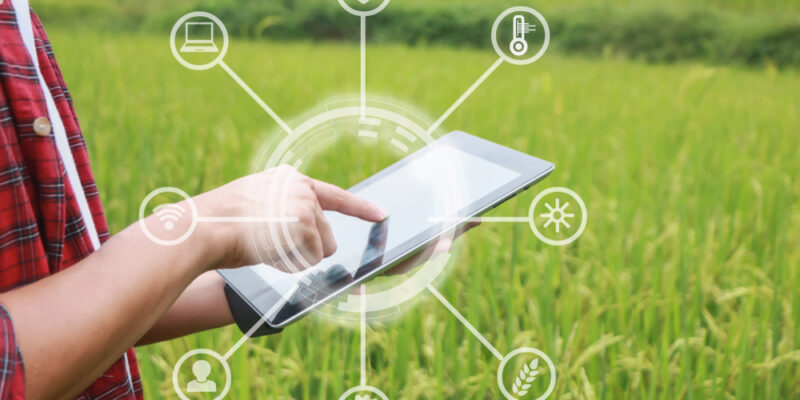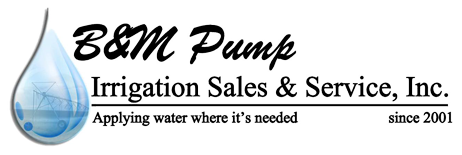
How Smart Irrigation Systems Save Texas Farmers Time and Water
The agricultural landscape in Texas is undergoing a quiet revolution, particularly in towns like Seminole, TX, where modern farming practices are steadily replacing traditional methods. Among the most transformative innovations reshaping farming across the Lone Star State are smart irrigation systems. These advanced technologies are not just a convenience—they are rapidly becoming essential tools for managing water use, optimizing crop yields, and reducing the labor demands on farmers. As Texas continues to face challenges from climate variability and water scarcity, the adoption of smart irrigation is proving to be a game-changer. Whether you’re managing a vast cotton farm or cultivating high-value crops, investing in WiFi irrigation system installation and farm irrigation automation can have lasting benefits.
The Water Challenge in Texas Agriculture
Texas agriculture is blessed with fertile lands and a long growing season, but water has always been a limiting factor. With a significant portion of farmland relying on irrigation for crop viability, efficient water management is crucial. In regions like Seminole, TX, where agriculture forms the backbone of the local economy, water scarcity and erratic rainfall patterns have made traditional irrigation methods increasingly unsustainable.
Over the years, farmers have relied on manual irrigation scheduling, which not only consumes time but also often leads to either overwatering or underwatering crops. This inefficiency affects both crop quality and water conservation. In a state where groundwater supplies are dwindling and regulatory scrutiny on water usage is intensifying, there is a growing imperative to adopt technologies that can do more with less. Enter smart irrigation systems—an innovation that allows farmers to take precise control over how and when their fields are watered.
Smart irrigation systems utilize sensors, weather data, and automation to ensure that water is used efficiently and only when necessary. These systems can measure soil moisture levels, monitor plant water needs in real time, and adjust irrigation schedules accordingly. This level of precision leads to less water wastage and more consistent crop health, especially in climates as variable as those in TX.
The Power of Automation: Farm Irrigation in the Digital Age
Farm irrigation automation is more than a buzzword—it’s a powerful approach that is streamlining operations across Texas farms. These systems are typically equipped with WiFi connectivity and can be controlled remotely via smartphones or computers. For farmers in areas like Seminole, TX, this means the ability to manage irrigation schedules without being physically present in the field. Automation saves countless hours that would otherwise be spent manually opening valves, adjusting pumps, and checking soil conditions.
What sets smart irrigation systems apart is their ability to integrate multiple data sources. They often sync with local weather stations, satellite imaging, and even AI-based forecasting tools. This integration allows the system to anticipate weather changes and adjust irrigation plans proactively. For example, if rain is forecasted within the next 24 hours, the system can delay watering to avoid redundancy. Conversely, during unexpected heatwaves, the system can increase irrigation intervals to protect crops from heat stress.
Automation also facilitates more uniform water distribution, which is critical for large-scale operations. Traditional methods often lead to uneven watering, where some zones are oversaturated while others remain parched. Smart systems eliminate this issue through zone-specific control and data-driven adjustments. With just a few taps on a mobile app, farmers can monitor system performance, check moisture levels, and receive alerts if something goes wrong—bringing a new level of operational control to agriculture in TX.
Installation and Adoption: The Rise of WiFi Irrigation in Seminole, TX
In the heart of West Texas, Seminole is becoming a hotspot for innovation in irrigation practices. Local agricultural service providers have seen a surge in demand for WiFi irrigation system installation as farmers recognize the long-term benefits of automation. These installations typically involve outfitting existing irrigation infrastructure—such as pivots, drip lines, or sprinklers—with smart controllers and sensors.
The process begins with a comprehensive site assessment, which includes mapping out field topography, identifying crop types, and evaluating soil conditions. Once installed, these systems can be customized to meet the unique needs of each farm. For instance, crops with deeper root systems may require less frequent but deeper watering cycles, while sandy soils may need more frequent, lighter applications.
The upfront cost of installing a smart irrigation system can be significant, but most farmers view it as a strategic investment. Financial savings on water and labor, combined with improved crop yields, often lead to a high return on investment within just a few seasons. In addition, various incentive programs and grants in Texas support the adoption of sustainable technologies, making the transition more accessible for small to mid-sized farms.
In Seminole and surrounding areas, local technicians offer end-to-end services—from planning and installation to training and maintenance. This local support network has made it easier for farmers to embrace the technology without facing steep learning curves. As more farmers share success stories, adoption rates continue to climb, creating a ripple effect throughout the region.
Environmental and Economic Benefits
The environmental benefits of smart irrigation systems are substantial. By reducing over-irrigation, these systems help prevent soil erosion, nutrient leaching, and water runoff—all of which can degrade the long-term health of farmland. Conserving water also reduces the strain on local aquifers, which are under increasing pressure from population growth and industrial demands in Texas.
Economically, smart irrigation offers a lifeline to farmers grappling with rising operational costs. Labor is one of the largest expenses in agriculture, and automation directly reduces the need for manual labor. A farmer who once needed several workers to manage irrigation can now oversee the entire operation from a centralized dashboard. This not only cuts costs but also improves response times when adjustments are needed.
Improved crop yields are another major benefit. With optimal water delivery, plants grow more uniformly and are less susceptible to disease and stress. This consistency translates to higher-quality produce and better market prices. In competitive agricultural markets, even small gains in yield can make a big difference in profitability.
Furthermore, having a data trail of irrigation practices can be advantageous when applying for certifications, insurance claims, or government subsidies. Smart systems often come with built-in reporting features that make it easy to document water usage and compliance with best practices—an increasingly important aspect of modern farming in TX.
The Future of Farming in Texas
Looking ahead, the integration of smart irrigation systems into Texas agriculture is only set to deepen. As climate conditions continue to fluctuate and the cost of water increases, the demand for precision farming technologies will grow. What began as a high-tech option for large-scale farms is now becoming mainstream, thanks to falling technology costs and improved accessibility.
Emerging technologies such as machine learning and the Internet of Things (IoT) are expected to further enhance these systems. Future smart irrigation solutions may be capable of learning from each season’s performance to refine their algorithms, becoming more efficient over time. Drones and satellite imagery may also play a greater role in identifying irrigation needs and detecting issues before they become problems.
For farmers in Seminole, TX, and beyond, embracing smart irrigation is not just about staying competitive—it’s about securing the future of their land and livelihood. The ability to save time and water while increasing output is a powerful value proposition, especially in an industry where margins are tight and resources are precious.
Conclusion
Smart irrigation systems are revolutionizing agriculture across Texas by offering sustainable, data-driven solutions to age-old challenges. From WiFi irrigation system installation to full-scale farm irrigation automation, the future is bright for farmers who choose to innovate. As more Texas farmers make the shift, they’re not just adapting to change—they’re leading it.
Need an Irrigation System Company in Seminole, TX?
Welcome to B&M Pump Irrigation Sales & Service, Inc.! We are your professional irrigation specialist! Our typical services include complete pump service, water well service, system design, and pivot systems. We deliver personal service and reliability to our customers in Texas, Oklahoma, New Mexico, and Arizona. No matter where you are in the southwest, B&M Pump Irrigation Sales & Service, Inc., is a name you can trust. We strive to educate owners and operators on making pumps and motors last longer and work more efficiently. We sell good quality products at a fair price and stand behind the products we sell. Give us a call today to speak with one of our service experts today!
Categorised in: Irrigation
